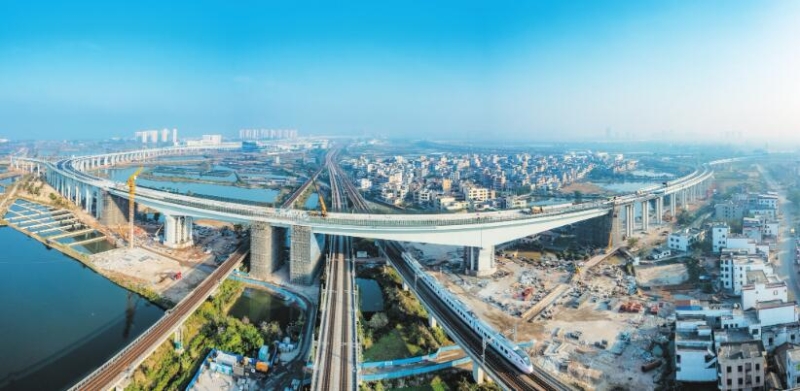李世默:从全球视野看中共形象新变化
EMERGING TRENDS IN CHINESE STUDIES AND THE ROLE OF THE PARTY
By: Eric X. Li
In the modern era, Chinese studies in the West have gone through two main generations: the generation of the historic school and the generation of the ideological school. Contemporary Western perceptions and understanding of China, in both the academic world and popular press, have been informed by the methods and aims of these two schools.
I would like to suggest that we are at the beginning of a new phase. A third generation is emerging. This new generation is approaching China with new methods and different aims within different contexts. This development has placed the fundamental frameworks of Chinese studies in transition. How this evolves will have decisive impacts on the world’s interpretations of China. As such, the contemporary CCP, the party, as China’s central governing institution, is in a position to exercise significant influence over the future landscape and conditions of Chinese studies and thereby China’s image in the eyes of the world.
First, let’s summarize the past.
The first generation, the historic school, has guided the world’s understanding of China since early 20th century. Its ranks have been filled with illustrious scholars, such as Jonathan Spence and Ezra Vogel. They seek to study modern China in an historical context and thereby better understand the nation’s trajectory. Their methods are deeply cultural. Their studies in China’s politics, historical and social conditions, and the personalities who drove China’s modern history have made significant contributions to the world’s repertoire of knowledge.
The second generation, the ideological school, on the other hand, has proved to be a deeply flawed approach. This school materialized after 1989 in the context of the post Cold War ideological fervor. Historic determinism framed their approach and the entire school was defined by the ideological dichotomy between liberal democracy and authoritarianism. The aim of their studies carried an overtly political and ideological agenda - to prove the Chinese political system is on an inevitable course towards eventual collapse. The methods of their studies are similar to what is called “opposition research” in American political campaigns. This school has been largely discredited by facts on the ground and I suspect their impact on the future will be limited at best.
That was then, and this is now.
The dramatic rise of China in all aspects of its national power in recent decades is impacting every walk of life in just about every corner of the world. As a result, some of the brightest minds in political science, history, and economics are beginning to examine closely what it all really means. Many of them are no longer China experts but generalists. They form the third new generation.
One of the two newly emerging trends in the current generation is the theoretical school. It seeks to use existing theories in political science and international relations, such as constructivism, theory of "rightful resistance", theory of "social solidarity", "audience theory", etc. to analyze and interpret various developments in China. In my personal view, the approaches taken by the theoretical school are not promising. They may fall into the same trap as the ideological school that proceeded them – applying abstract principles to highly specific and incommensurate conditions.
A much more interesting emerging trend is the empirical school. In this approach, the methods center around empirical data and the aim is the objective understanding of Chinese governance in both historic and contemporary contexts. Some of the most notable scholars have begun to undertake this approach, such as Francis Fukuyama on political science, Nicholas Lardy on economics, and Taylor Fravel on international relations. More importantly, perhaps, is that many from the current young generation of scholars are undertaking this approach.
In my view, the emerging empirical school carries the most significant promise in the future. It is the most significant sign that the academic community is shifting beyond ideological judgment and toward empirical analysis. Its heavy emphasis on governance, its focus on specific problems, and its reliance on data are all consistent with what the world needs in both its desire to better understand China and the need to address governance problems elsewhere.
This new generation of Chinese scholarship is attracting some of the best minds in the business. It is happening in the context of two underlying forces. First, the global impact of China’s rise is such that more comprehensive understanding of its governance is urgently needed. Second, a vast number of countries, including America and major European states and many developing nations are encountering unprecedented difficulties in political governance. Everywhere, the post Cold War consensus on political governance is being reassessed. The accomplishments of China, if properly studied, could provide the world with much needed fresh perspectives.
There is, however, a substantial gap that, if not addressed, would greatly limit the potential of this shift. There is too little knowledge and data about the most important institution that is at the center of it all – the party.
The party’s centrality in Chinese governance has been a fact in both principle and practice. Yet, a most peculiar phenomenon in the past decades since the founding of the People’s Republic has been the party’s insistence that it remains behind a state structure that resembles every other modern state in the world.
But everyone knows it is not so. Everyone knows the Chinese model of governance has its own unique characteristics, namely, the party matters the most. Everyone knows the party has a most extraordinarily elaborate system of selecting and promoting officials within the political system. Everyone knows the party operates a highly sophisticated process of decision-making and feedback collection on policies. Yet, so little specifics are made known to the world.
We are at the beginning of a new era. Ideology is receding into the background. In this post-ideological era, governance and problem solving are becoming the most pressing requirements everywhere in the world. It seems the world’s scholastic community is ready and eager to find practical solutions to real world problems.
This new generation of scholars of every social science is finding that China is the big elephant in the room. One cannot produce a credible and full picture of contemporary political governance without considering the Chinese case. Indeed, the Chinese phenomenon is perhaps the most significant experiment in political governance taking place in the world today. Further, one cannot unlock the secret behind the Chinese phenomenon without studying the party. The key resides with the party. All roads lead to the party. Will the party step forward and offer the world a chance to learn? What is the content that could bring about qualitative improvements in not only the understanding of China but political governance in general?
The answers to both are affirmative and encouraging. In its nearly 65 years of governing the People’s Republic, the party has led China from the most debilitated state of existence to an emerging great power. In the 35 years since Deng Xiaoping’s reforms, the party has led the most significant improvements in standard of living for the largest number of people in the shortest period of time in human history. The party’s model of governance is deep and rich and unique. The opening up of the party will expand the entire world’s horizon.
Perhaps today can be the beginning of a new and rewarding period. The party will further open itself to the world. And the world will undertake to study and understand the most important institution that is at the center of the most important phenomenon in political governance of our time.
It is a two-way street. The party needs to come forward and open up. The scholastic community needs to approach the party with an open mind and empirical attitude. Much work remains to be done. But I am hopeful that, a generation from now, this process will have facilitated the building of new bodies of knowledge that would contribute to the entire world’s understanding of political governance. From its standpoint, the party will have an unprecedented opportunity to influence the narrative of modern China for generations to come.
By then, perhaps, we can look back to this day as a historic beginning.
·凡注明来源为“海口网”的所有文字、图片、音视频、美术设计等作品,版权均属海口网所有。未经本网书面授权,不得进行一切形式的下载、转载或建立镜像。
·凡注明为其它来源的信息,均转载自其它媒体,转载目的在于传递更多信息,并不代表本网赞同其观点和对其真实性负责。









6cc392fa-788e-4dfd-b570-bcc561fa95a3.jpg)
2df87608-6821-4059-a534-2c3e43b47365.jpg)
de8013ed-b1e5-47b2-a3cb-99072fff3945_zsize.jpg)
bb909d63-37c0-4305-8726-caf5cb67b690.png)

dc1a970a-5919-40ed-81c5-7c2d9c1a6f6e.jpg)






